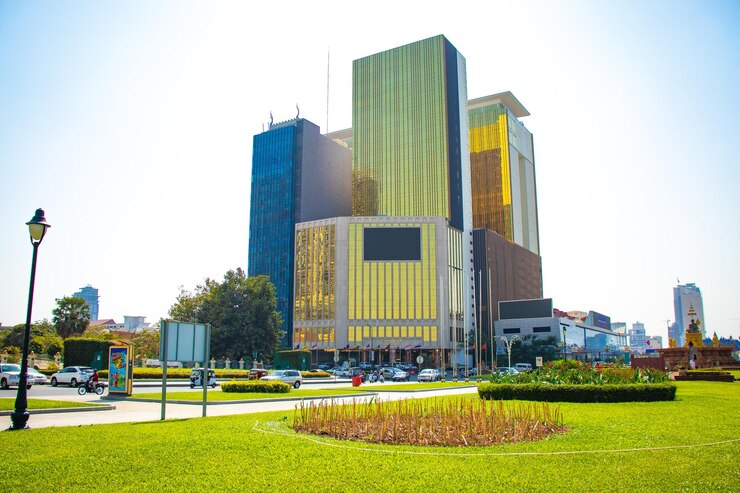Exploring the Benefits of Living in Croatia

When considering relocation, the question “Is Croatia a good place to live?” frequently arises. For those seeking a blend of natural beauty, rich history, and modern amenities, Croatia stands out as an exceptional choice. This stunning country, with its picturesque coastline, Mediterranean climate, and vibrant culture, offers a remarkable quality of life. In this blog, we’ll explore the quality of life, economic aspects, and real estate opportunities, focusing on the picturesque regions of Dalmatia and the historic city of Dubrovnik.
Climate and Natural Beauty
Croatia enjoys a Mediterranean climate characterized by warm summers and mild winters, making it an inviting place to live year-round. The country’s coastline along the Adriatic Sea boasts crystal-clear waters and beautiful beaches, perfect for those who love the sea and sun. Beyond the coast, Croatia’s diverse natural landscapes include mountains, lakes, and national parks, offering endless opportunities for outdoor activities and adventures. Whether you are hiking in the Dinaric Alps or exploring the Plitvice Lakes, nature lovers will find Croatia a paradise.
Healthcare System
The Croatian healthcare system provides high-quality medical services through a network of well-equipped hospitals and clinics. Most healthcare facilities are located in urban areas, but quality healthcare is also available in smaller towns. Croatia offers public health insurance that covers basic medical needs, while private health insurance provides additional benefits and faster access to specialists. Foreigners living in Croatia can easily access the healthcare system through various insurance options.
Education System
The Croatian education system provides a high level of education through primary and secondary schools and numerous universities. Public schools are free and offer quality education, while private and international schools are available in larger cities such as Zagreb and Dubrovnik. International schools offer curricula in English, which is a great advantage for expatriates who want to ensure continuity of education for their children.
Cost of Living
The cost of living in Croatia is relatively affordable compared to many Western European countries. Housing prices vary depending on the location, with higher prices in popular tourist destinations such as Dubrovnik and Split, while costs are lower in smaller towns and rural areas. Utilities, including electricity, water, and heating, are also reasonable. Food prices in stores and markets are affordable, and local products are often of very high quality. Public transportation, especially bus and tram lines, offers economical options for getting around cities, while fuel prices for private vehicles are also moderate. Entertainment and leisure activities, such as dining out, going to the movies, and attending cultural events, are affordable, further enhancing the quality of life.
Job Opportunities
The job market in Croatia offers various opportunities, although it can be challenging to find a job as an expatriate. The most opportunities exist in the tourism, IT, healthcare, and construction sectors. Zagreb, as the capital city, offers the most job opportunities, while coastal cities provide seasonal jobs in tourism and hospitality. Expatriates often encounter language barriers and administrative obstacles, so knowing the Croatian language and local culture is an advantage. However, an increasing number of international companies are opening offices in Croatia, which increases employment opportunities for foreigners.
Taxation and Legal Considerations
The Croatian tax system includes various taxes, including income tax, value-added tax (VAT), and property tax. Income tax is progressive and depends on the level of earnings. VAT is 25%, which is standard for most goods and services. The legal procedures for relocation and residence in Croatia include obtaining a residence permit, registering an address, and registering in the tax system. Expatriates need to be aware of important legal aspects, including employment conditions, rental rights, and local laws. It is recommended to engage a local legal expert or migration consultant to facilitate the relocation process and ensure compliance with all legal requirements.
Real Estate Market in Croatia
The Croatian real estate market has experienced significant growth in recent years, attracting both domestic and foreign investors. Market stability is supported by increased demand for properties, especially in tourist regions such as Dalmatia, Istria, and Dubrovnik. The capital city, Zagreb, is also a popular investment destination, with a growing market for residential and commercial properties. Property prices vary depending on the location, with the highest prices in popular tourist destinations and urban centers. However, rural areas and smaller towns are becoming increasingly attractive for those seeking a quieter environment and more affordable prices.
Croatia offers a unique blend of natural beauty, rich culture, and modern amenities, making it an ideal place to live, work, and invest. Despite some challenges, the benefits of living in Croatia—affordable living, quality healthcare, excellent education, and vibrant culture—make it a compelling destination for those seeking a fulfilling lifestyle. Whether you are considering moving for work, retirement, or investment, Croatia presents numerous opportunities and a promising future.





